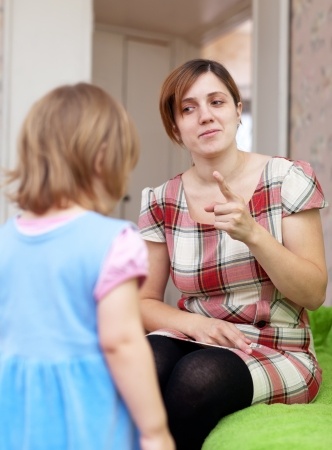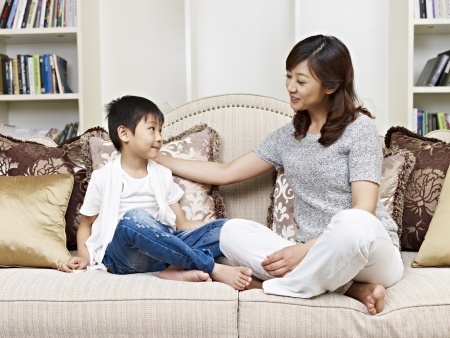Non-punitive parenting may be a whole new planet for most parents. The punitive approach is so pervasive especially in Asian culture that it is almost natural behaviour. Som Yew Ya explores this parenting method and clarifies what does parenting without punishment really means.

What is non-punitive parenting?
Non-punitive parenting uses positive parenting to teach and guide children. It focuses on understanding development and guiding through play, role-playing, modelling, equipping the child with resources to do better based on a strong relationship between parent and child. It is important who the parents are to the children and what the parents do to them. The most effective way to teach is to treat the children the way we want them to treat others. Hence non-punitive parenting steers clear of time-outs, spankings and consequences. This is not to be confused with limits.
What about time-outs, spankings and consequences?

The above are surely effective in getting the child to respond the way you want one way or another. However positive parenting offers some radical thoughts to them. Rather than leaving your child in a corner feeling angry and emotional (time-out), do time-ins by removing children from the situation and help to process emotions. With spanking, it may teach that it is ok to hit people. Through taking away things and giving consequences, what is being taught is that the children need to be ‘taught a lesson’. If you don’t listen to Mummy, you deserve to not get this or that…
The basis of non-punitive parenting
According to neuroscience, especially before the age of six, children do not have full access to the frontal region of the brain which handles logic, sequential thinking, self-awareness and self regulation. This is important information as neural pathways which are still being developed will affect the level of a child’s reaction to situations and management of a problem. Research shows that children who are punished misbehave more.
They get angry and defensive and the reason for compliance is not due to understanding but to avoid the consequence. Punishment disengages parents from their children. Therefore non-punitive parenting encourages a focus on the mindful relationship with the child; setting limits while being connected so that he or she can feel secure and accepted. This encourages the child to be in touch with his or her emotions and to internalise what is being lived.
So how can we guide children without punishment?
#1 Regulate your own emotions.
Don’t act out when you are upset – usually you will end up doing something you regret. If you need to calm down give yourself space.
#2 Honor feelings
When your child is fuelled by something and very upset, refrain from lecturing (“Everyone is looking at you, shame shame!”) or reasoning at this time. Don’t ask her to shut-up or lie ( “The policeman will come and take you away”) Instead try to provide a calm bay for your child to express herself in your attentive presence. Expressing emotions with a safe and accepting parent helps the child to move through her feelings and learn to self-soothe. When she is calm, she will be more open to your guidance.
#3 Children learn differently
Routines help to give structure for a habit or learning something new. Start little by little, role modelling, showing how to do it, giving your child more and more responsibility each time. Make it fun with room for failure. Yelling or giving more work due to a failure simply teaches the wrong lessons.
#4 Connect before you correct

Nothing will go through if you are correcting without being connected to your child. You can squat down to the child’s level, encourage the child to express his kicking or biting in words, show empathy etc. “You are mad at Mummy because….”
#5 Set limits with empathy
This means no “because mummy says so” kind of language. Be firm on limits but with acknowledgement of her perspective, this will facilitate the child’s understanding.
“You are very mad right now because it’s time for bed, but we don’t kick or throw things when we are sad or mad.”
There are many more ways to parent without punishment beyond the scope of this article. This may be a new school of thought for many and not easy to say the least, considering it is much easier and faster to pronounce a time-out or mete out a punishment. How do you want your child to respond to you?
By Som Yew Ya.
This article was first published in The New Age Parents e-magazine.
* * * * *
Like what you see here? Get parenting tips and stories straight to your inbox! Join our mailing list here.
Want to be heard 👂 and seen 👀 by over 100,000 parents in Singapore? We can help! Leave your contact here and we’ll be in touch.





















































